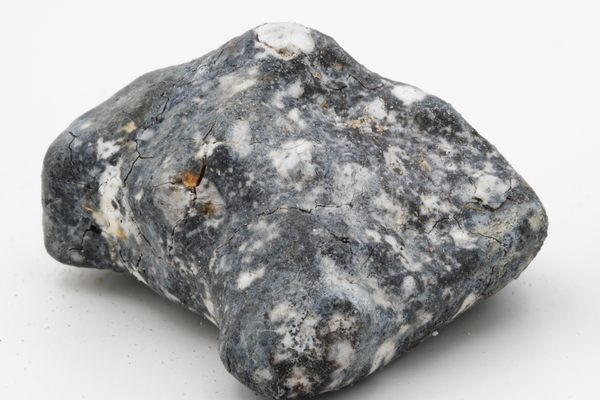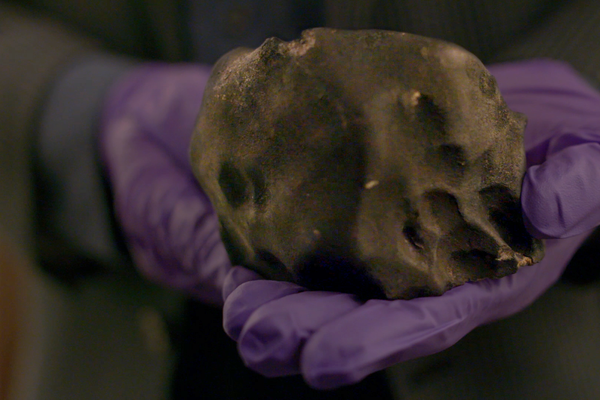A Rare, 4.5-Billion-Year-Old Meteorite Hit the Netherlands
Scientists are excited.
Meteorites in the Netherlands, like in a lot of places throughout the world, can be very hard to find. That’s because they’re small and hard to distinguish from other rocks and can land anywhere. We frequently don’t even know they exist unless they make us notice, like when they hit someone’s car or someone’s hip.
Which is what happened in January in the Netherlands, when a one-pound meteorite hit a shed and was discovered by residents who were picking through the damage, according to Agence France-Presse. The meteorite is only the sixth found in the country in the last 200 years, which means it was cause for celebration by scientists there, some of whom released a video Sunday to unveil the rock and explain how excited they were.

Scientists at the Naturalis Biodiversity Centre in Leiden have been studying the rock for months since its discovery to be sure of what they had. They eventually identified it as an L6 chrondite, a type of meteorite that is among the most ordinary found on Earth. It probably came from an asteroid belt between Mars and Jupiter, and is, the scientists said, 4.5 billion years old, or around the same age as the Earth itself.
“We can learn from it what happened in the very beginning of the solar system when you had a stellar cloud that collapsed and minerals started to form, when planetoids started to form for the very first time,” Leo Kriegsman, a geologist, told AFP.
You can also learn, Kriegsman said, what kinds of rocks existed around the time the Earth was formed, since this meteorite is older than any rock currently existing on Earth.
Kriegsman said he and a student will now try to figure where the rock might have existed inside of an earlier planet, now likely long gone and forgotten.









Follow us on Twitter to get the latest on the world's hidden wonders.
Like us on Facebook to get the latest on the world's hidden wonders.
Follow us on Twitter Like us on Facebook